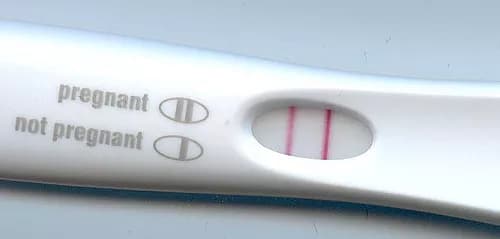
Emergency Contraception Not As Accessible As It Should Be, Say Researchers
Efforts to remove barriers to accessing emergency contraception (EC) scored victories in 2013, when the U.S. Food and Drug Administration removed age restrictions on over-the-counter sales of the levonogestrel drug Plan B. But those who need EC can still encounter cost and availability barriers.
Researchers at the University of Colorado School of Medicine discovered this when they asked 633 Colorado pharmacies in 2014 about EC access. They found EC completely accessible to just 23 percent of those who use them.
They report their findings in the latest issue of the journal Women's Health Issues, "Barriers to Single-Dose Levonorgestrel-Only Emergency Contraception Access in Retail Pharmacies." The study was selected by the editor of Women's Health Issues as an Editor's Choice article for the September/October 2017 edition.
Women's Health Issues is the official journal of the Jacobs Institute of Women's Health, which is based in the Department of Health Policy and Management at Milken Institute School of Public Health (Milken Institute SPH) at the George Washington University.
Study author Van (Mimi) Chau, a student at CU School of Medicine, under the mentorship of Carol Stamm, MD, along with colleagues that included Laura Borgelt, PharmD, a professor at the University of Colorado Skaggs School of Pharmacy and Pharmaceutical Sciences used the Little Blue Book 2014, which physicians use for referrals, to identify Colorado pharmacies, and then had three researchers call the pharmacies posing as women seeking levonogestrel-only emergency contraception (LNG-EC). Chau was part of the University's Leadership, Education, Advocacy and Development (LEADS) track while she worked on the project.
They asked each pharmacy whether they had LNG-EC in stock, whether it was located on the shelf or had to be requested from the pharmacy, whether a generic version was available, how much the product cost, and whether any additional documentation -- such as proof of age or a prescription -- was required to purchase the drug. The authors defined EC as being "completely accessible" at a pharmacy if the responding employee reported having it available on store shelves that day for purchase without presenting an ID or prescription. Accessibility is important because EC must be taken within 120 hours of intercourse, and research suggests it is most effective within the first 24 hours.
Chau and her colleagues found that 87 percent of pharmacies reported having LNG-EC in stock, but it was only completely accessible at 23 percent of the stores surveyed. Of the stores with the drug in stock, 42 percent reported it was behind the counter -- i.e., had to be requested from a pharmacy employee -- and 56 percent told callers an ID or prescription was required for purchase. Independent pharmacies were significantly less likely to have EC in stock (58 percent of independent stores vs. 90 percent of chain stores and 100 percent of 24-hour stores) or demonstrate complete access (10 percent vs. 25 percent and 15 percent), the authors report. Requiring EC purchasers to request the drug from a pharmacy employee and present additional documentation are potentially substantial barriers, the authors note, because people may find it embarrassing to interact with an employee about reproductive healthcare and may lack the requested documents. Adolescents may not have identification or may not meet the age limit pharmacy employees believe to be in place.
When considering why pharmacy employees report outdated policies for documentation and behind-the-counter access, the authors point out that the age cutoff for LNG-EC products changed four times before being lifted completely, and suggest "delays in updating store policies or lag in information dissemination may explain the variability in knowledge among pharmacy staff about FDA regulations and requirements."
"Although federal policy restrictions on LNG-EC have been removed, this study demonstrates that retail pharmacy-level policies can still create tangible hindrances in obtaining appropriate health care," Chau and her co-authors write.
The study, "Barriers to Single-Dose Levonorgestrel-Only Emergency Contraception Access in Retail Pharmacies," has been published in the September/October issue of Women's Health Issues.
Materials provided by University of Colorado Anschutz Medical Campus. Note: Content may be edited for style and length.
Disclaimer: DoveMed is not responsible for the accuracy of the adapted version of news releases posted to DoveMed by contributing universities and institutions.
References:
Van (Mimi) Chau, Carol A. Stamm, Laura Borgelt, Michelle Gaffaney, Alia Moore, Rachel Z. Blumhagen, Leanne Rupp, Daniel Topp, Christine Gilroy. (2017). Barriers to Single-Dose Levonorgestrel-Only Emergency Contraception Access in Retail Pharmacies. Women's Health Issues. DOI: 10.1016/j.whi.2017.03.010
Related Articles
Test Your Knowledge
Asked by users
Related Centers
Related Specialties
Related Physicians
Related Procedures
Related Resources
Join DoveHubs
and connect with fellow professionals

0 Comments
Please log in to post a comment.